| | | OFFLINE | | Post: 21.578
Post: 4.213 | Registrato il: 28/08/2005
Registrato il: 20/01/2009 | Administratore | Utente Master | |
|
 GENERAL AUDIENCE TODAY
GENERAL AUDIENCE TODAY
Catechesis on St. Juliana of Norwich
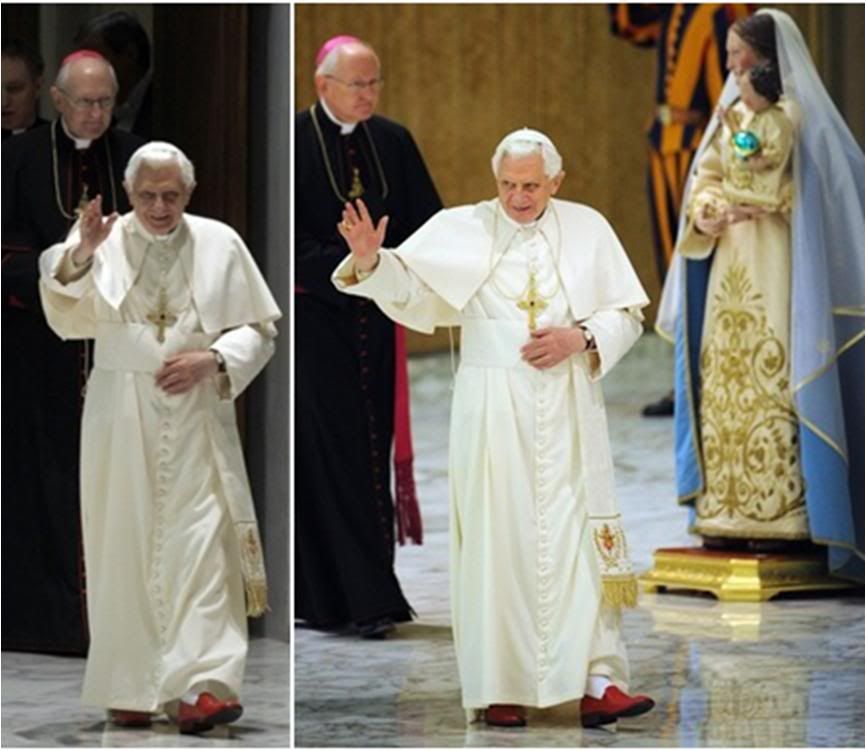
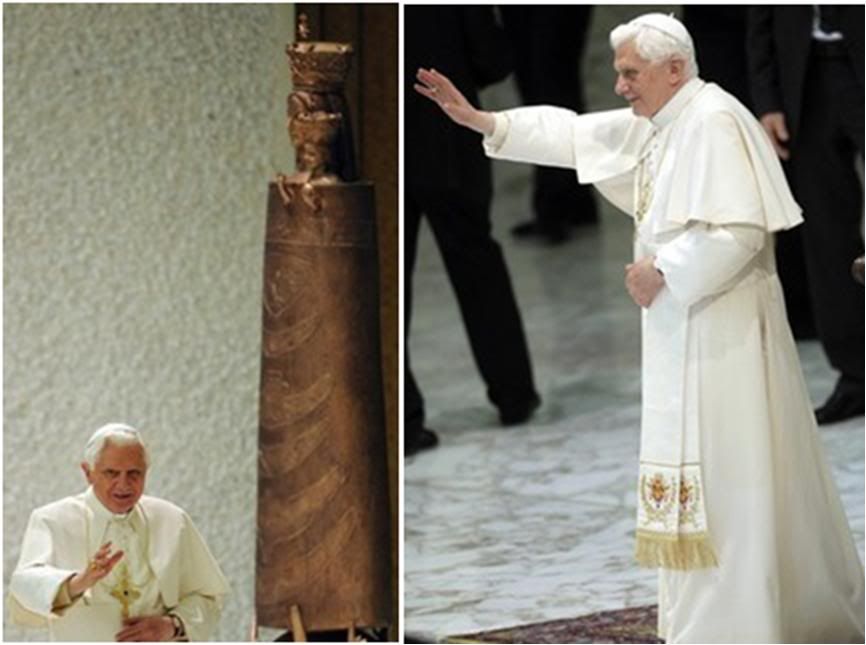 NB: In left photo above, the giant copper statue of Our Lady of Loreto, patron of aviation, was later blessed by the Holy Father.
NB: In left photo above, the giant copper statue of Our Lady of Loreto, patron of aviation, was later blessed by the Holy Father.
It will be installed at Rome's Leonardo da Vinci international airport.
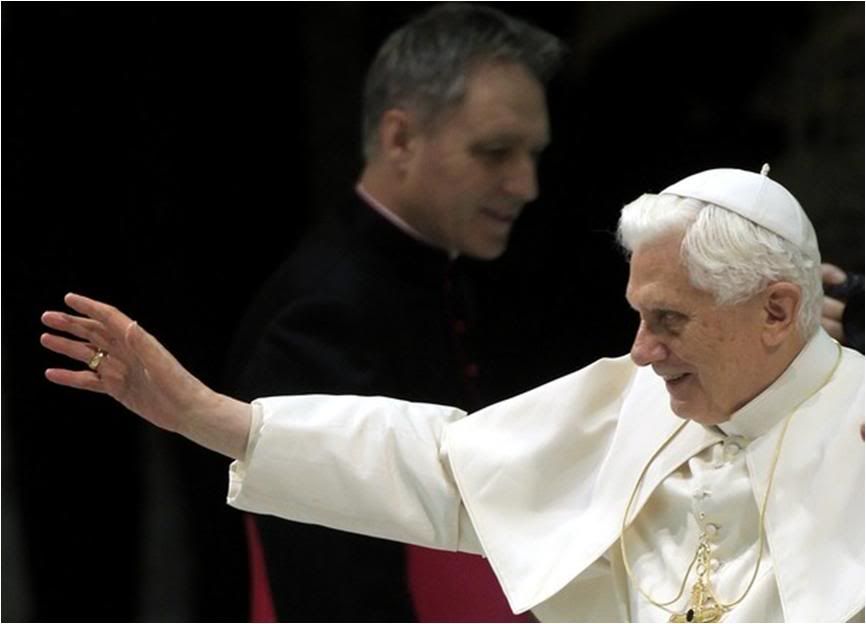
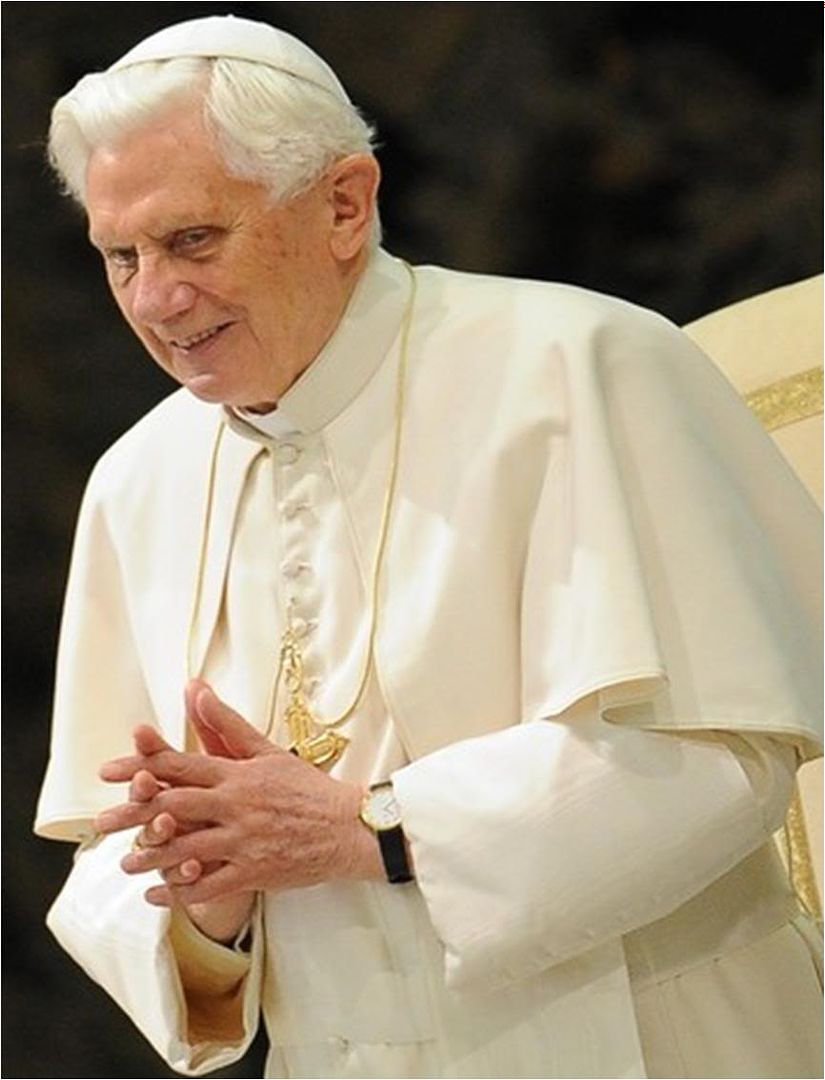
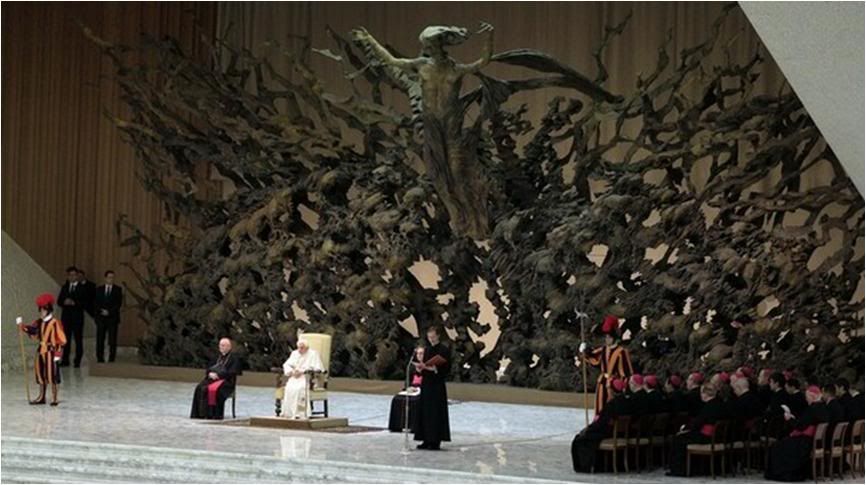 Bringing good out of evil:
Bringing good out of evil:
Prayer for China

1 DEC 2010 (RV) - Pope Benedict launched an appeal at the end of the General Audience today in a sign of support and solidarity with the Church in China.
This came a week after the Holy See’s condemnation of an illicit ordination in Chengde and the abuse of bishops by authorities who forced them to participate in the illegal ceremony.
Speaking to an estimated 8,000 pilgrims in the Aula Paolo VI, the Pope said:
I commend to your prayers and to those of Catholics throughout the world the Church in China, which, as you know, is going through a particularly difficult time.
We ask the Blessed Virgin Mary, Help of Christians, to sustain all the Chinese Bishops, who are so dear to me, so that they may courageously bear witness to their faith, placing all their hope in the Saviour whom we are awaiting.
We also entrust to the Virgin Mary all the Catholics of that beloved country, that, through her intercession, they may be able to live an authentic Christian life in communion with the universal Church, contributing in this way also to the harmony and common good of their noble people.
His appeal followed a catechesis centered on having faith in Divine Providence even when it seems that evil prevails.
This week, in his series on great female figures from the Church in the Middle Ages, the Holy Father presented a very English saint, revered by Catholic and Anglicans alike: Julian of Norwich.
Considered one of the greatest English mystics, little is known of her life aside from her writings. She was known to have lived during the thirteenth and fourteenth centuries, a time of great turbulence for the Church, rocked by schism following the return of the Popes from Avignon, and for her country, which was at war with France.
Even her name is uncertain, the name "Julian" coming from the Church of St Julian in Norwich, where she was an anchoress (a type of hermit living in a cell attached to the church, engaged in contemplative prayer).
Pope Benedict said “Julian is best known for her book, Revelations of Divine Love, which recounts sixteen visions or “showings” which she received during a grave illness. The Revelations are centred on the love of Christ; in Julian’s own words: “love is our Lord’s meaning”.”
Pope Benedict continued: “They exude an optimism grounded in the certainty that we are loved by God and protected by his providence. As Julian says, in speaking of God’s power to bring good out of evil: “all will be well, and every kind of thing will be well”.
Julian’s mysticism, he added “echoes the prophet Isaiah in using the imagery of a mother’s love to describe the affectionate care which God shows for his children, culminating in the incarnation of his Son and the fulfilment of his promises. Like so many holy women in every age, in spite of her withdrawal from the world Julian became a much-sought spiritual guide. In our own lives, may we draw profit from her teaching that God is the love which transforms our lives, bringing joy and peace to our hearts and, through us, to those all around us”.
Finally the Holy Father greeted all those present at the audience: “I extend a warm welcome to the many student groups present at today’s Audience. Upon all the English-speaking visitors, especially those from Malaysia, Australia and the United States of America, I cordially invoke an abundance of joy and peace in our Lord Jesus Christ”.
NB: The female saint introduced to us today by the Holy Father has a masculine name, Julian. As he explains in the catechesis, she adopted the name of the bishop-saint who was the patron of the church where she lived as an anchoress.
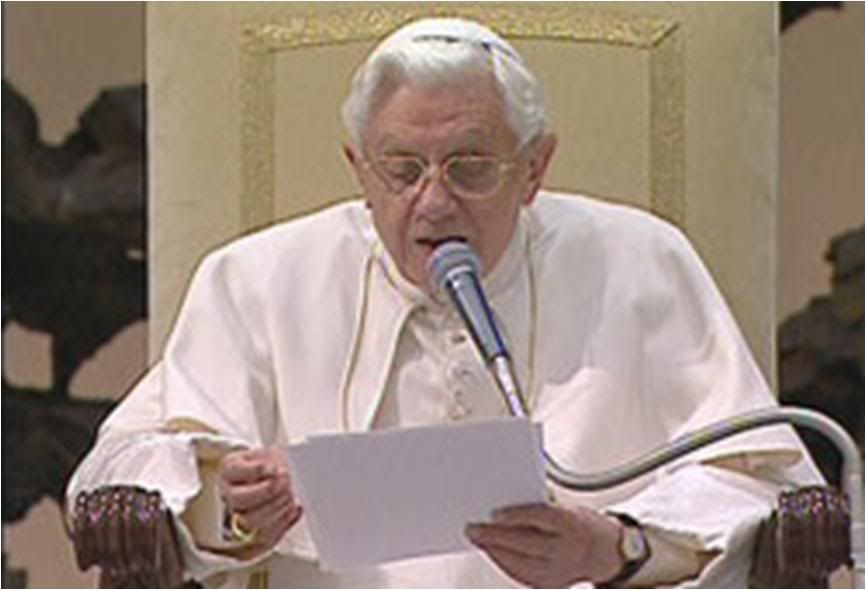 Here is a full translation of the Holy Father's catechesis:
Here is a full translation of the Holy Father's catechesis:

Second and third from left: Statue of Julian flanking the entrance to the Cathedral of Norwich; and the door to her cell in the Church.
Dear brothers and sisters:
I still remember with great joy the apostolic visit that I made to the United Kingdom last September. England is a land that has given birth to so many illustrious figures who, with their witness and teaching, adorn the history of the Church.
One of them, venerated by both the Catholic Church and the Anglican Communion, is the mystic Julian of Norwich, about whom I wish to speak today.
What we know about her life - not very much - is deduced principally from the book entitled Revelations of divine love, in which this pious noblewoman wrote down the content of her visions.
We know that she lived from 1342 to about 1430, years of torment for the Church, which was lacerated by the schism that followed the return of the Pope from Avignon to Rome, and by the life of the people who were suffering the consequences of a long war between the kingdoms of England and France.
God, however, even in times of tribulation, does not cease to raise figures like Julian of Norwich to recall mankind to peace, love, and joy.
As she herself tells us, in May 1373, probably on the 13th of the month, she was struck suddenly by a very grave illness which brought her close to death after three days. After the priest, who had come to her bedside, showed her the Crucifix, Julian not only recovered instantaneously but subsequently received the 16 revelations that she wrote down and commented upon in her book.
And it was the Lord himself who, 15 years after those extraordinary events, revealed to her the meaning of those visions.
"Do you want to know what your Lord intended and the meaning of these revelations? Then know it well: Love is what he intended. Who reveals this to you? Love. Why do I reveal it to you? For love... Thus you will learn that our Lord means love" (Julian of Norwich, The book of revelations, chap 86, Milan, 1997, p 320).
Inspired by divine love, Julian made a radical decision. Like an ancient anchoress, she chose to live inside a cell next to the church named for St. Julian in the city of Norwich, at that time an important urban center, located near London.
Her decision to live as a recluse, as they said in her day, may surprise and even perplex us. But she was not the only one who made such a choice: In those centuries, a considerable number of women chose this style of life, following rules which had been appositely elaborated for them, such as the Rule composed by St. Aelred of Rievaulx.
Anchoresses, or recluses, dedicated themselves within their cells to prayer, meditation and study. This way, they ripened a most refined human and religious sensibility which made them venerated by the people.
Men and women of every age and condition, who were in need of advice and comfort, sought them out with devotion. And so, it was not an individualistic choice - Julian's very nearness to the Lord also matured her capacity to be an adviser to so many people and to help those who lived in difficult conditions.
We know that she received frequent visits, because we are toldo so in the autobiography of another fervent Christian of her time, Margery Kempe, who went to Norwich in 1413 to obtain her counsel on spiritual life. And that is why when Julian was still alive, she was called Mother Julian, as written on her funeral monument. She had become a mother to many.
Men and women who retreat from ordinary life to live in the company of God - precisely because of this decision - acquire a great sense of compassion for the sorrows and weaknesses of others. Friends of God, they dispose of a wisdom that the world - from which they have distanced themselves - does not possess, and which they amiably share with those who knock on their door.
Therefore, it is with admiration and gratitude that I think of the cloistered monasteries for men and women which, now more than ever, are oases of peace and hope, a precious treasure for the Church, especially in evoking the primacy of God and the importance of constant and intense prayer for the journey of faith.
It was in such a solitude inhabited by God that Julian of Norwich composed the Revelations of divine love, of which two editions have come down to us. A shorter and probably older one, and a longer version.
This book contains a message of optimism based on the certainty of being loved by God and protected by his Providence. We read in this book the following magnificent words: "I see with absolute certainty... that God loved us even before he created us, with a love that has never grown less, nor will ever vanish. In this love, he did all his work in a way that all things may be useful for us. And in this love, our life will last forever... In this love we have our beginning, and and all this we will see in God without end" (Ibid., chap 86, p. 320).
The subject of divine love recurs often in the visions of Julian of Norwich who, with a certain daring, does not hesitate to liken it to maternal love. This is one of the most characteristic messages of her mystical theology.
The tenderness, solicitude, and kindness of God's goodness towards us are so great that, to us who are pilgrims on earth, they evoke the love of a mother for her own children.
Actually, even the Biblical prophets had at times used this language which evokes the tenderness, the intensity and the totality of God's love which is manifested in Creation and the whole history of salvation, and culminates in the Incarnation of the Son.
But God always surpasses every human love, as the prophet Isaiah says: "Can a mother forget her infant, be without tenderness for the child of her womb? Even should she forget, I will never forget you" (Is 49,15).
Julian of Norwich understood the central message for spiritual life: God is love, and only when we open up to his love, totally and with total trust, and we allow it to be the entity that guides our existence, then everything becomes transfigured, we find true peace and joy, and we are able to spread it around us.
I wish to underscore another point. The Catechism of the Catholic Church cites the words of Julian of Norwich when it presents the viewpoint of the Catholic faith on a subject that has not ceased to be a provocation for all believers (cfr Nos. 304-314).
If God is supremely good and wise, why does evil exist and why do the innocent suffer? Even the saints - especially the saints - have asked this question. Illuminated by faith, they give us an answer which opens our heart to trust and hope: in the mysterious designs of Providence, God can bring good even from evil, as Julian of Norwich wrote: "I learned from God's grace that I must remain firmly in the faith, and that therefore I must believe firmly and perfectly that everything will end well..." (The book of revelations, chap 32, p 173).
Yes, dear brothers and sisters, the promises of God are always much greater than our expectations. If we entrust to God, to his immense love, the most pure and profound desires of our heart, we shall never be disappointed.
"And all shall be well", "all manner of things shall be well" - this is the final message that Julian of Norwich sends us and that I, too, propose to you today. Thank you.

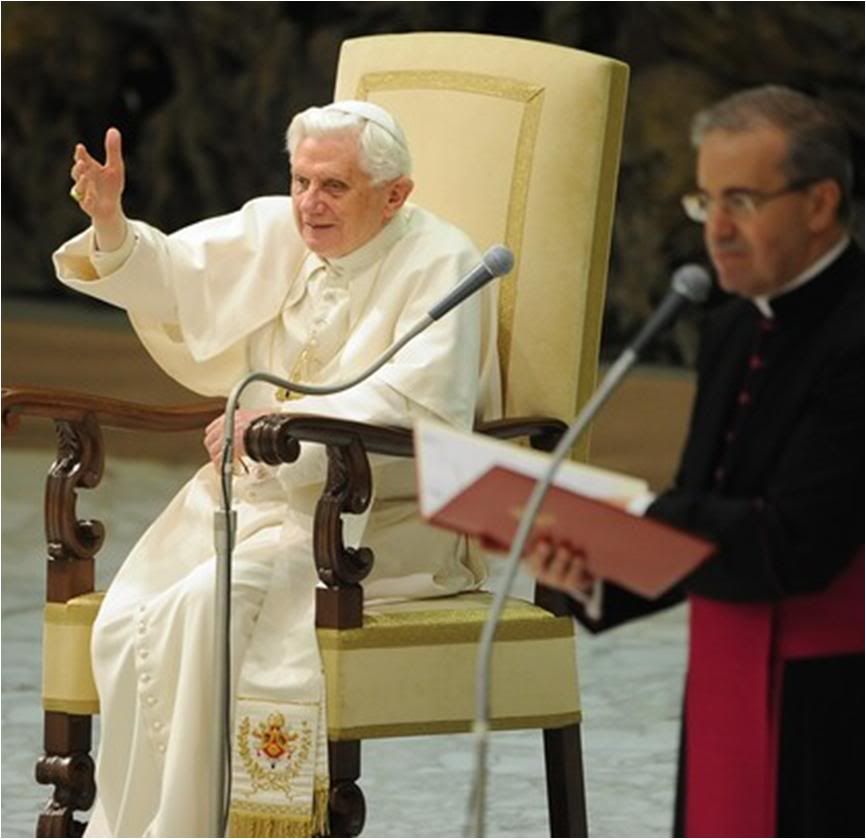
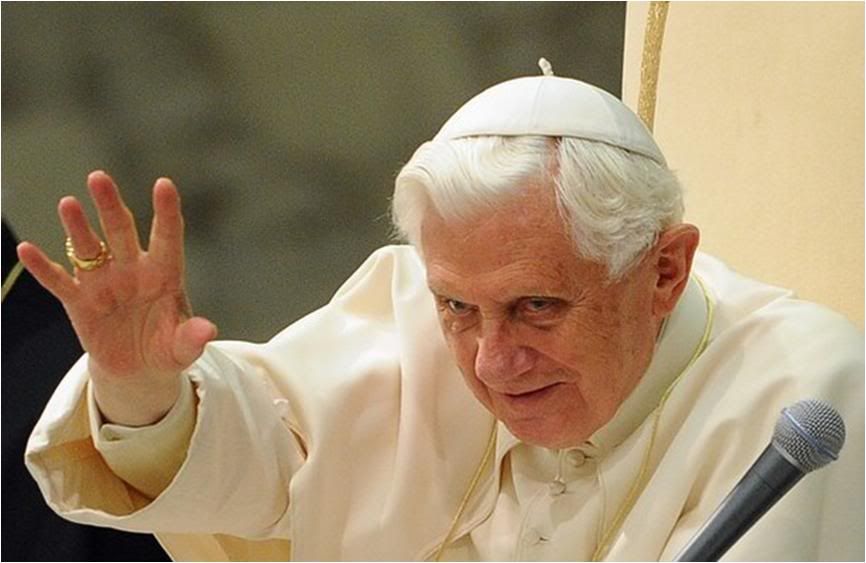
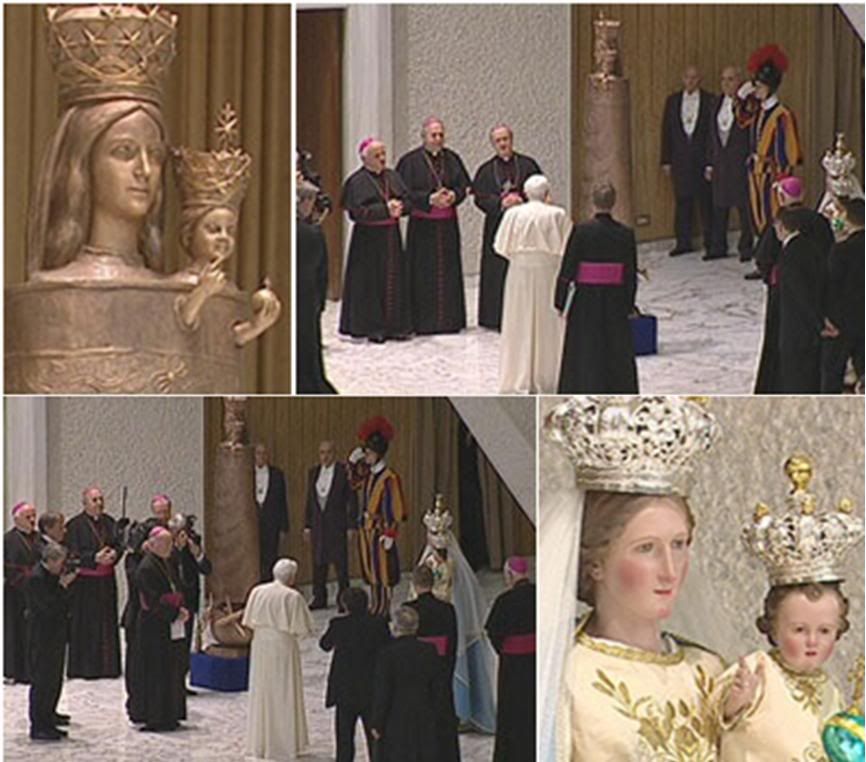 Pope meets with victims
Pope meets with victims
of Baghdad church bombing
who are in Italy for treatment

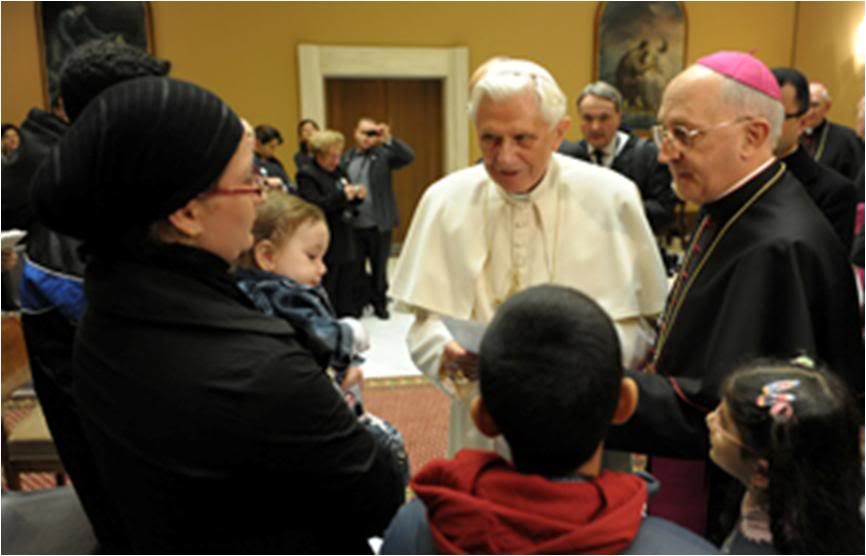
VATICAN CITY, Dec. 1 (AP) - Pope Benedict XVI has met with 26 victims of a militant bombing on a Baghdad church who were airlifted to Italy last month for medical treatment.
Vatican officials said Benedict greeted the injured and their relatives — some 50 people in all — in a private audience following his general audience Wednesday. No details were released.
Sixty-eight people were killed when militants stormed Baghdad's Our Lady of Salvation Church on Oct. 31 during Sunday Mass. The Vatican denounced the attack and others that have targeted Iraq's besieged Christian community.
At the Vatican's request, Italy airlifted 26 injured to Rome for treatment. All but two have been released from the hospital. Vatican officials said they too attended the audience.
[Modificato da TERESA BENEDETTA 07/12/2010 16:01] |